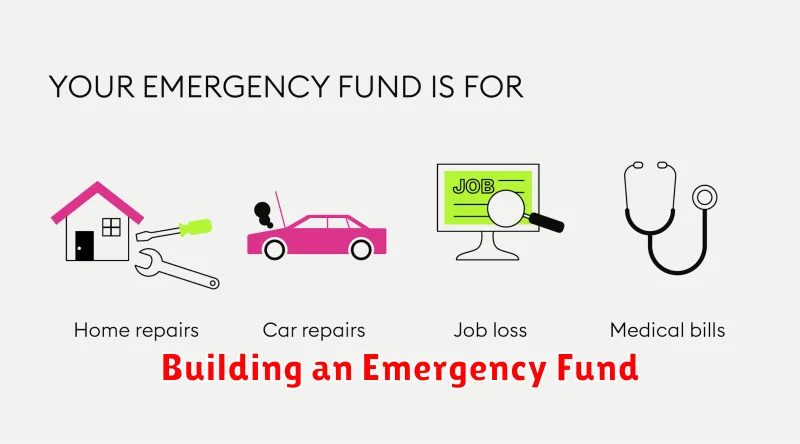Are you tired of feeling overwhelmed by your finances? Do you constantly struggle to make ends meet, pay off debt, or save for the future? You’re not alone. Many people find managing their personal finances challenging, but it doesn’t have to be. With the right knowledge and strategies, you can take control of your money and achieve your financial goals. This ultimate guide will provide you with all the tools and information you need to effectively manage your personal finances, from budgeting and saving to investing and debt management.
Whether you’re just starting out, looking to improve your current financial habits, or aiming to achieve financial independence, this guide will equip you with the essential skills and insights. We’ll cover a wide range of topics, including budgeting fundamentals, effective saving strategies, smart debt management techniques, investment options, and more. By understanding these concepts and implementing them into your daily life, you can build a solid financial foundation and pave the way for a brighter financial future.
Understanding Your Current Financial Situation
Before you can effectively manage your finances, you need to understand where you stand. This involves taking a clear look at your current financial situation. This crucial step sets the foundation for your financial journey.
Start by gathering all your financial documents. This includes bank statements, credit card statements, loan agreements, investment statements, and any other relevant paperwork. Once you have everything organized, it’s time to analyze your income and expenses.
Income: List all your sources of income, including salary, wages, investments, and any other regular payments. Be sure to account for both gross and net income, as well as any potential deductions.
Expenses: Track your expenses meticulously. This includes fixed expenses like rent or mortgage payments, utilities, and insurance, as well as variable expenses like groceries, entertainment, and transportation. Keep track of your spending for at least a month, using a budgeting app, spreadsheet, or a simple notebook.
Once you have a clear picture of your income and expenses, you can calculate your net income. This is the amount of money you have left over after paying all your bills. Analyzing your net income will help you identify areas where you might be overspending and identify potential savings opportunities.
Understanding your current financial situation is essential for making informed financial decisions. It allows you to identify your strengths and weaknesses, set realistic financial goals, and create a plan to achieve them.
Setting SMART Financial Goals
Financial goals are crucial for taking control of your finances. They provide direction, motivation, and a clear path to achieving your financial aspirations. However, simply setting goals isn’t enough; they need to be SMART – Specific, Measurable, Achievable, Relevant, and Time-bound.
Specific
A specific goal clearly defines what you want to achieve. Instead of saying “I want to save more money,” specify the amount you want to save, like “I want to save $5,000 for a down payment on a house.” This clarity helps you focus your efforts and track your progress.
Measurable
A measurable goal allows you to monitor your progress and determine if you’re on track. Quantify your goal with numbers. For example, instead of “I want to pay off debt,” specify “I want to pay off $10,000 in credit card debt within the next 12 months.”
Achievable
Set goals that are challenging but attainable. Avoid setting unrealistic expectations that can lead to discouragement. Break down large goals into smaller, more manageable steps. For example, if you want to save $10,000, start by saving $833 per month.
Relevant
Ensure your goals align with your values and overall financial objectives. If your goal is to invest more, but you’re struggling to pay off high-interest debt, prioritize paying off the debt first. Make sure your goals are relevant to your current financial situation and long-term aspirations.
Time-bound
Setting deadlines creates urgency and helps you stay motivated. Attach a specific timeframe to your goals. Instead of “I want to retire early,” set a goal like “I want to retire by age 55.” This provides a clear target and encourages you to take action.
By setting SMART financial goals, you gain clarity, purpose, and a roadmap to achieve your financial aspirations. Regularly review your goals, adjust them as needed, and celebrate your progress along the way.
Creating a Realistic Budget
A budget is a plan for how you will spend your money. It’s a powerful tool for managing your personal finances, but it’s only effective if it’s realistic. A budget that’s too restrictive is likely to be abandoned, while one that’s too lenient won’t help you reach your financial goals.
To create a realistic budget, start by tracking your spending for a month or two. Use a budgeting app, spreadsheet, or even a notebook to record every penny you spend. Once you have a good understanding of where your money is going, you can start to categorize your expenses.
Next, determine your fixed expenses, which are expenses that remain relatively consistent each month, such as rent or mortgage payments, car payments, insurance premiums, and loan payments.
Then, identify your variable expenses, which are expenses that fluctuate each month, such as groceries, gas, entertainment, and dining out.
Once you have a clear picture of your income and expenses, you can start to create your budget. Allocate your income to different categories based on your priorities. For example, you may want to prioritize paying off debt, saving for retirement, or building an emergency fund.
Remember that your budget is a living document. You may need to adjust it as your income or expenses change. It’s important to review your budget regularly and make changes as needed.
Tracking Your Income and Expenses
Tracking your income and expenses is the foundation of effective personal finance management. It allows you to understand where your money is going and helps you make informed decisions about spending and saving. Here’s how you can go about tracking your income and expenses:
Use a budgeting app or spreadsheet
There are many budgeting apps and spreadsheets available that can help you track your income and expenses. These tools often offer features such as automatic transaction tracking, budgeting categories, and financial reports. Some popular options include Mint, Personal Capital, and YNAB.
Create a budget
Once you have a clear picture of your income and expenses, you can create a budget that aligns with your financial goals. A budget helps you allocate your money to different categories, such as housing, food, transportation, and entertainment. It also helps you identify areas where you can cut back on spending.
Categorize your expenses
Categorizing your expenses helps you understand where your money is going and allows you to make informed decisions about your spending habits. For example, you can categorize your expenses into essentials such as rent, utilities, and groceries, and discretionary spending such as dining out, entertainment, and shopping.
Track your progress
Regularly review your income and expense tracking data to identify areas where you can improve your financial management. This might involve increasing your savings rate, reducing your discretionary spending, or negotiating lower bills.
Make adjustments as needed
Life is full of surprises, and your financial situation can change over time. As your income and expenses change, it’s important to adjust your budget accordingly. This ensures that you’re always on track to achieve your financial goals.
By tracking your income and expenses, you gain valuable insights into your financial habits and empower yourself to make informed decisions about your money. This is a crucial step towards achieving financial stability and reaching your long-term financial goals.
Building an Emergency Fund

An emergency fund is a vital component of responsible personal finance. It acts as a financial safety net, providing a cushion to cover unexpected expenses and prevent financial hardship during emergencies.
The goal of an emergency fund is to accumulate enough savings to cover three to six months of essential living expenses, such as rent, utilities, groceries, and transportation. This amount will vary depending on your individual circumstances and financial situation.
Here are some key steps to building an effective emergency fund:
- Determine your target amount. Calculate your monthly essential expenses and multiply that amount by three to six.
- Set a realistic savings goal. Break down your target amount into smaller, achievable goals to avoid feeling overwhelmed.
- Automate your savings. Schedule regular transfers from your checking account to your savings account, even if it’s just a small amount.
- Cut unnecessary expenses. Identify areas where you can reduce spending, such as dining out, entertainment, or subscriptions.
- Look for additional income opportunities. Consider a side hustle or selling unused items to boost your savings.
Maintaining an emergency fund is an ongoing process. Once you’ve reached your target amount, continue to replenish it as you spend from it. Remember, the goal is to build a financial cushion that will protect you from unexpected life events.
Managing Debt Effectively
Debt can be a significant burden, affecting your financial well-being and overall stress levels. However, managing debt effectively is crucial for achieving financial stability and reaching your goals. Here are some practical tips for tackling debt and regaining control of your finances:
1. Track Your Debt: Start by understanding the full scope of your debt. List down all your outstanding loans, credit cards, and other liabilities, including the principal amount, interest rates, and minimum payments. This comprehensive overview will help you prioritize repayment strategies.
2. Create a Budget: A realistic budget is essential for managing debt. Track your income and expenses meticulously, identifying areas where you can cut back. Allocate a specific amount towards debt repayment each month. Consider using budgeting apps or spreadsheets to simplify this process.
3. Prioritize Repayment: There are several strategies for prioritizing debt repayment. The snowball method focuses on paying off the smallest debts first, while the avalanche method targets the debts with the highest interest rates. Choose the method that motivates you and aligns with your financial goals.
4. Consider Debt Consolidation: If you have multiple debts with high interest rates, debt consolidation can help simplify repayment and potentially lower your overall interest burden. This involves combining several debts into a single loan with a lower interest rate. However, it’s essential to carefully assess the terms and conditions of consolidation loans.
5. Seek Professional Help: If you’re struggling to manage your debt on your own, consider reaching out to a credit counselor or financial advisor. These professionals can provide personalized guidance, debt management strategies, and potentially negotiate with creditors on your behalf.
6. Avoid Further Debt: Once you’ve started tackling your existing debt, make a conscious effort to avoid accumulating new debt. Resist impulsive purchases and stick to your budget to prevent setbacks in your debt repayment journey.
Managing debt effectively requires discipline, planning, and commitment. By following these tips, you can regain control of your finances, reduce your debt burden, and work towards a brighter financial future.
Saving and Investing for the Future
Saving and investing are essential for securing your financial future. By setting aside money today, you can build a solid foundation for your future goals, whether it’s buying a home, retiring comfortably, or achieving your dreams.
Saving involves setting aside a portion of your income regularly, typically in a savings account or money market account. This provides you with a safety net for unexpected expenses and helps you reach short-term financial goals.
Investing, on the other hand, involves putting your money into assets that have the potential to grow over time. This could include stocks, bonds, mutual funds, real estate, or other investments. Investing allows you to grow your wealth and potentially beat inflation over the long term.
When it comes to saving and investing, it’s crucial to have a well-defined strategy. Here are some key factors to consider:
- Determine your financial goals: What are you saving or investing for? Retirement? A down payment on a house? Your child’s education? Knowing your goals will help you prioritize and set realistic savings and investment targets.
- Establish a budget: Track your income and expenses to understand where your money is going. This allows you to identify areas where you can cut back and increase your savings.
- Automate your savings: Set up automatic transfers from your checking account to your savings account or investment account. This ensures you save consistently without having to think about it.
- Diversify your investments: Don’t put all your eggs in one basket. Spread your investments across different asset classes to reduce risk and potentially maximize returns.
- Seek professional advice: If you’re unsure where to start or need guidance on investment strategies, consider consulting a financial advisor.
Remember, saving and investing are long-term journeys. It’s important to be patient, stay disciplined, and adapt your strategies as needed. By taking control of your finances today, you can create a brighter and more secure future for yourself and your loved ones.
Protecting Yourself with Insurance
Insurance plays a crucial role in securing your financial well-being by providing a safety net against unforeseen circumstances. It acts as a shield against potential risks, protecting you from significant financial losses that could otherwise derail your financial goals.
There are various types of insurance that cater to different needs, such as:
- Health insurance covers medical expenses, safeguarding you from the burden of hefty medical bills.
- Life insurance provides financial support to your loved ones in case of your untimely demise, ensuring their financial security.
- Home insurance protects your property from damages caused by fire, theft, or natural disasters.
- Auto insurance covers damages to your vehicle and liability claims in case of accidents.
Determining the appropriate insurance coverage is essential. Consider factors like your age, health, lifestyle, assets, and financial obligations to determine the right amount and type of insurance. It is crucial to choose a reputable insurance provider and understand the terms and conditions of your policy to ensure adequate protection.
By securing adequate insurance coverage, you can create a robust financial foundation, ensuring peace of mind and financial stability in the face of life’s uncertainties.
Planning for Retirement
Retirement may seem like a distant future, but it’s never too early to start planning. Financial planning is a crucial step in securing your future and achieving financial freedom.
The sooner you start saving for retirement, the more time your money has to grow. This is the power of compounding, where interest earned on your initial investment also earns interest, creating a snowball effect over time.
Here are some key steps to consider when planning for retirement:
Determine your retirement goals
The first step is to establish a clear vision of your retirement lifestyle. How much money will you need to maintain your current standard of living? What are your post-retirement goals?
You can use online calculators and financial advisors to estimate your retirement needs based on your income, expenses, and projected lifespan.
Choose the right retirement plan
There are various retirement plans available, such as 401(k)s, IRAs, and Roth IRAs. The right choice depends on your individual circumstances and financial goals.
Consider factors like tax advantages, contribution limits, and withdrawal rules. Seek guidance from a financial professional if needed.
Save consistently and invest wisely
Save as much as you can, even if it’s a small amount each month. Consistency is key to building a substantial nest egg.
Invest your savings wisely in a diversified portfolio of assets, including stocks, bonds, and real estate. Consider your risk tolerance and time horizon when making investment decisions.
Review and adjust your plan regularly
Life is full of unexpected changes. Regularly review your retirement plan to ensure it aligns with your evolving needs and goals.
Monitor your investments, adjust your contributions, and make necessary adjustments to your plan as your circumstances change.
Estate Planning Essentials

Estate planning is a crucial aspect of personal finance, ensuring your assets are distributed according to your wishes and minimizing potential tax liabilities after your passing. It involves creating a plan to manage your assets, specify beneficiaries, and appoint legal representatives.
Here are some key elements of effective estate planning:
- Will: A legal document outlining how your assets will be distributed to beneficiaries. It’s essential to review and update your will regularly, especially after major life events such as marriage, divorce, or the birth of a child.
- Trusts: Legal arrangements that allow a designated trustee to manage your assets for beneficiaries. Trusts can offer tax advantages, asset protection, and help avoid probate proceedings.
- Power of Attorney: A legal document appointing someone to act on your behalf if you become incapacitated. This can cover financial, medical, and other important decisions.
- Living Will: This document clarifies your wishes regarding medical treatment in the event you become terminally ill or unable to make decisions about your care.
- Beneficiary Designations: Updating beneficiary designations for retirement accounts, life insurance policies, and other financial instruments ensures your assets are distributed according to your wishes.
Consult with an experienced estate planning attorney to create a personalized plan that aligns with your unique circumstances and goals. They can guide you through the complexities of estate planning laws and ensure your wishes are effectively carried out.
Seeking Professional Financial Advice

While managing personal finances can seem daunting, seeking professional financial advice can provide invaluable guidance and support. A financial advisor can help you develop a comprehensive financial plan tailored to your individual needs and goals. Their expertise can navigate complex financial matters, such as investing, retirement planning, and tax optimization, providing clarity and peace of mind.
Consider working with a financial advisor if you are:
- Feeling overwhelmed by your finances.
- Facing significant life changes, such as marriage, divorce, or a job change.
- Looking to make major financial decisions, such as buying a home or investing.
- Struggling to reach your financial goals.
When choosing a financial advisor, it is crucial to find someone with:
- Credentials, such as Certified Financial Planner (CFP®) or Chartered Financial Analyst (CFA).
- Experience in areas relevant to your needs.
- A strong ethical reputation and a commitment to fiduciary duty.
- A transparent fee structure that aligns with your budget.
By seeking professional financial advice, you gain access to personalized guidance, objective insights, and a trusted partner in your financial journey.
Utilizing Personal Finance Tools and Resources
In today’s digital age, numerous tools and resources are available to help you manage your finances effectively. These tools can assist you with budgeting, tracking expenses, investing, and more. By utilizing these resources, you can gain a clearer picture of your financial situation and make informed decisions about your money.
Budgeting Apps: Apps like Mint, Personal Capital, and YNAB (You Need a Budget) allow you to track your income and expenses, create a budget, and set financial goals. They often connect with your bank accounts to automate the process.
Investment Platforms: Online platforms such as Robinhood, Acorns, and Betterment make investing more accessible. They allow you to invest in stocks, ETFs, and mutual funds, often with low minimum investment requirements.
Financial Calculators: Websites like Bankrate and NerdWallet offer a variety of financial calculators, including retirement calculators, mortgage calculators, and loan calculators. These tools can help you understand the impact of different financial decisions.
Financial Education Resources: Many websites and organizations provide free or low-cost financial education resources, such as articles, videos, and webinars. The Financial Industry Regulatory Authority (FINRA) and the Securities and Exchange Commission (SEC) are valuable sources of information.
By utilizing these tools and resources, you can take control of your finances, make informed decisions, and work towards achieving your financial goals.

